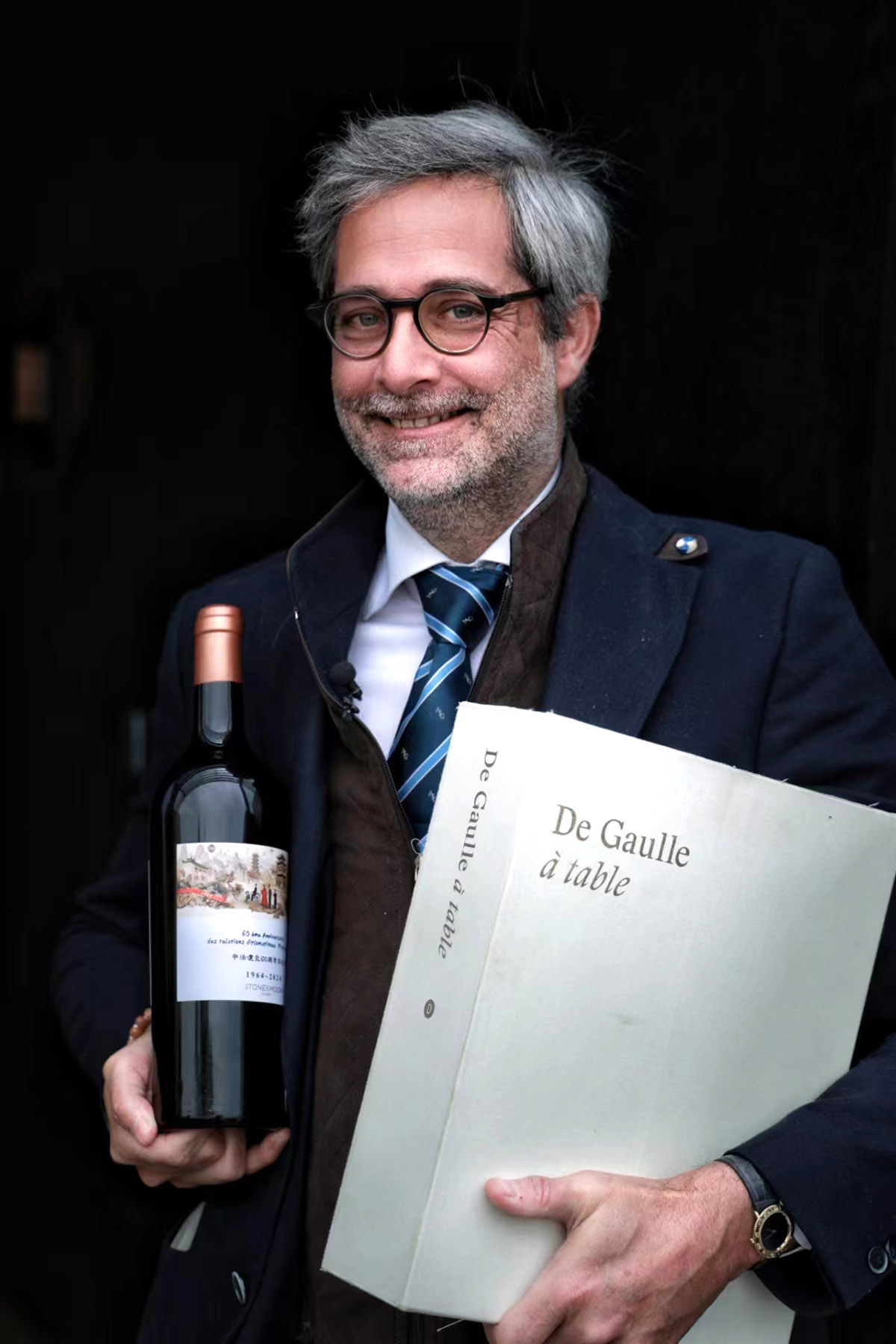
Every day, we consume food, but do these meals merely fill us up or truly nourish us? Renowned French gastronome Nicolas Kenedi prompts us to ponder this question.
During a recent visit to Beijing, Kenedi shared his philosophy on food with China Daily.
"Good food is the food that feeds you. A lot of things can fill you but don't feed you … You stuff yourself with unhealthy things that neither feed you nor nourish you," he says.
"Bad food creates an imbalance in your body and results in diseases, such as obesity and diabetes."
READ MORE: An appetizing approach to food
Kenedi urges people to leave their phones alone and care more about their bodies by preparing nutritious meals themselves rather than relying on unhealthy delivery options.
"To live a good life, you have to take care of your beauty and health, go to gym and stay fit," he emphasizes. "Use 20 percent of the time you spend on your phone, and you will find time to cook."
As a board member of the International Academy of Gastronomy, Kenedi is devoted to advocating the concept of healthy eating, which includes reducing sugar intake, eating less — particularly less animal protein — and opting for minimally processed foods.
These principles are reflected in the 10 proposals put forth by the AIG on its 40th anniversary in November last year. "Gastronomy is about eating, preserving your health, understanding what you're eating and having fun in a friendly environment," the manifesto asserts.
The proposals also encompass environmental respect for our land, the protection of biodiversity, the preservation of local cuisines and the development of comprehensive educational programs.
In an effort to raise awareness of healthy eating, Kenedi is currently working on a comic book that will be published next year. It will cover such engaging topics as how you enjoy things with people, how you drink like a French person and how to cook simply and fast.
However, food transcends mere sustenance. It's intrinsically linked to diplomacy. As Kenedi says: "No gastronomy without diplomacy. Gastronomy is the No 1 diplomatic weapon."
Recognizing the significance of grand historical banquets and the duty of remembrance, Kenedi launched an ambitious project with his friend Jean-Maurice Sacre, a menu collector, to publish books that reveal France's history through its gastronomy and menus. To date, three volumes have been released, namely Legend Menus, De Gaulle at Table and Versailles: The Gastronomic Revolution.
These meticulously crafted books showcase more than 4,000 menus, featuring rare gems, such as a menu served by Louis XIV during his journey to Chambord in 1684. They also incorporate precious handwritten documents, engravings and photos spanning French culinary history from the 17th century to the present.
Notably, the collection boasts at least 50 unique menus and images that have no parallel. Published by Editions Dilecta, these exclusive volumes are limited to 400 copies or fewer per edition.
Culinary history mirrors political history, and Kenedi aims to broaden access to these invaluable resources through his book project. "Historical books frame the attitude of people for the best of the future," he asserts.
Drawing from these archival materials, Kenedi has curated significant dining events, such as the 125th anniversary celebration of the French Institute Alliance Francaise in New York and the legendary dinner at Paris City Hall for the 40th anniversary of AIG. "What makes a successful dinner is a meaningful dinner," he says.
During the planning of the dinners, he revisited historical menus, such as the one served at the Palace of Versailles in 1961 by French President Charles de Gaulle to US President John F. Kennedy and re-created the dishes.
"You cannot celebrate without looking at the past with a great vision of the future," Kenedi says, highlighting the role of historical menu re-creation in his book project.
ALSO READ: Menu of success ensures a taste of culture
As this year marks the 60th anniversary of diplomatic relations between China and France, numerous cultural exchange activities are on the horizon. Acting as a culinary bridge between the two nations, Kenedi offers insights into the distinctions between Chinese and French cuisines. He highlights the fact that China has pioneered numerous culinary techniques, whereas France has been instrumental in the development of restaurants as we know them today.
Additionally, he says that Chinese cuisine tends to use a wider array of spices and blend diverse flavors, whereas French culinary tradition emphasizes the combination of not more than three flavors. Despite these differences, both countries boast rich gastronomic heritages and share a common pursuit of the finest and most exquisite ingredients.
He also says that the Chinese emphasis on a sequential meal structure, starting with a light salad, followed by main courses and concluding with soup, is more conducive to digestion and fitness compared to the French tradition, which includes cheese and dessert.


